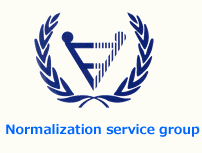Over half of Japan's population will at some time in their life develop cancer, approximately one third of them will die from it. Akita has the worst death rate in the nation.
We have taken this opportunity to invite two lecturers from the National Cancer Center, who will discuss the core of this issue in Japan, and also two doctors from Akita so that together they may deepen our understanding about cancer care.
The focus will be on the problem of anticancer treatment and mild care in the medical treatment of cancer in Akita.
 In addition, it has been 50 years since N.E.Bank-Mikkelsen, who was working for The Ministry of Society, started using the concept of Normalization. Normalization is a simple and practical method for achieving equality for handicapped people through providing community, rather than institution based care. N.E.Bank-Mikkelsen has travelled around the world, visiting Japan twice, to lecture on his practical method. Normalization has been very influential in Sweden (which neighbors Bank-Mikkelsen's native Denmark) not only in the treatment of handicapped people, but also in Nursing Home reform.
In addition, it has been 50 years since N.E.Bank-Mikkelsen, who was working for The Ministry of Society, started using the concept of Normalization. Normalization is a simple and practical method for achieving equality for handicapped people through providing community, rather than institution based care. N.E.Bank-Mikkelsen has travelled around the world, visiting Japan twice, to lecture on his practical method. Normalization has been very influential in Sweden (which neighbors Bank-Mikkelsen's native Denmark) not only in the treatment of handicapped people, but also in Nursing Home reform.
In order to push forward local coherence with the plan, decentralization, merger of cities, towns, and villages, and the transfer of tax revenue sources were carried out in Denmark in 1960, and Sweden in 1970.
In Japan, The Ministry of Health and Welfare made a 7 year strategy to implement Normalization for handicapped people in municipalities. The country's grant to construct institutions was abolished in 2002. Last year the handicapped person independence support law was established, which included Normalization and plans to provide local community support for 10,000 of 150,000 handicapped people, and 70,000 of 300,000 mentally handicapped people.
This shift to locally provided community support requires taking responsibility for the plan.
How to develop local support services? What is the right speed? How to solve problems at every life stage?
These answers must be tailored to each area in order for the plan to succeed.
Each area has different social resources, population, and natural conditions so a `one size fits all` policy is not appropriate.
Therefore, to push forward local coherence, to proceed with Community-based welfare and compulsory education, they performed decentralization, merger of cities, towns and villages, and transfers of tax revenue sources as in Denmark and Sweden.
We will have a lecturer from Professor Tadao Chiba who is a representative of the N.E.Bank-Mikkelsen commemorative foundation and three others lecturers.
We also, invite Professor Teruo Taninaka who founded 'Yadokari no sato' which became a model of local life support services for mental patients in Saitama prefecture.
These past ten years, as we visit institutions for handicapped people, Autism, serious handicap, multi handicapped persons are increasing.
Professor Ken Takeda from The Science University of Tokyo who is studying the causes of Autism, presented at an international child surgery society last year at Toronto, and director of Tochigi clinicopathology research institute, Professor Masao Sugamata are participating.
This will be the first time in Japan.
Furthermore, Mr. Shigeki Murotsu who represents The Japanese Society for impaired people and their supporters will lecture about group homes for the seriously handicapped.
About operation support for handicapped people, Mr. Hidemasa Zakihama will lecture who represents the operation support network of 100 places throughout Japan.
Recognized authority Mr. Naoki Ikeda from Osaka lawyer's association will lecture about adult guardianship and rights protection.
From the field of education for the handicapped, special needs education, and integration we have Professor Satoshi Arakawa from Ibaragi University. From autistic educational practice institution Tsukuba University Kurihama attached school for disabled children; Professor Shiho Kato will give a lecture.
On the 1st and 2nd days we will have comments from practitioners after the lectures, and receive questions from participants.
On day 3 there will be two open symposia.
In the morning, we will have a lecture from Professor Suguru Yamada who is the director of the local life support center in Nagano prefecture which has achieved the most in large-scale advance in local shift. After that, a discussion about the local shift in Akita with practitioners from Akita.
In the afternoon, Toshihiko Takahashi from Iwate prefecture will give a lecture on measures about institutional and parentless patients, with practitioners from all over the country.
The forum will be 3 days long; we hope it will help each of your activities.
Finally, Masako Kawamura, a member of the Executive Committee for Welfare International Forum in Akita city (Ryokkouen) recently died young from cancer
We pray her soul may rest in peace and want to dedicate this forum to her and all the hard work she did for it.
Representative of Normalization service group
1-6-17 Kajichou Chiyoda-ku
Goudou building 6F
Tokyo, Japan 101-0044
TEL 03-5256-6143
FAX 03-5256-0636
12-22 nakamachi tegatayama
Akita city, akita 010-0844
TEL 018-838-6828
FAX 018-838-4828
Preparing now
Monday-Friday
Am9:00-Pm 6:00


 The president speech
The president speech